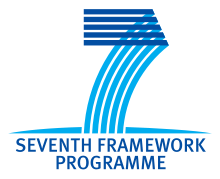Interim Evaluation of FP7 finalised
Nov 23, 2010
The independent Expert Group on the “Interim Evaluation of the Seventh Framework Programme”, appointed by DG RTD in the spring of 2010, published its Report finalised on 12 November 2010.
It has looked, in general, at whether the Programme is fulfilling its ambitions and, in detail, at several facets of its implementation, in order to arrive at recommendations for its development in the years to come. Some of the lessons that can be drawn from the evaluation can also be expected to inform the elaboration of subsequent EU research programmes and policies.
Key strengths, Areas in need of improvement, New concerns and dilemmas, Directions for reform, and Ten recommendations have been elaborated and specified.
Among the key Strengths the Expert Group underlines that “in much of the Cooperation Programme - to which nearly two-thirds of FP7 funding is allocated - leading researchers are being funded, the quality of proposals is generally assessed to be high and there is robust competition for funding”. Furthermore, “mobility and training of researchers continues to be underpinned by the ‘Marie Curie actions’ under the specific programme People and is making a valuable contribution to the development of the human capital of researchers”.
When looking at the given recommendations, among others, “the mix of funding measures in FP7 and successor programmes should strike a different balance between bottom-up and top-down approaches to research greater emphasis in the specific programme Cooperation during 2011-2013 on more open calls.”
Besides, “further steps to increase female participation in FP7 should be taken in its remaining years“ or “opening of the FP7 to international cooperation is of great value”.
The complete list of findings and details can be found under the following link.
http://www.era.gv.at/space/11442/directory/11675/doc/21664.html
Back





